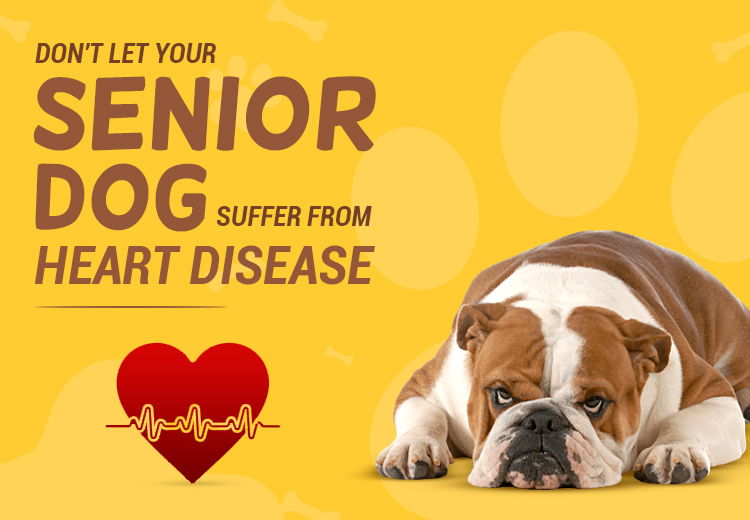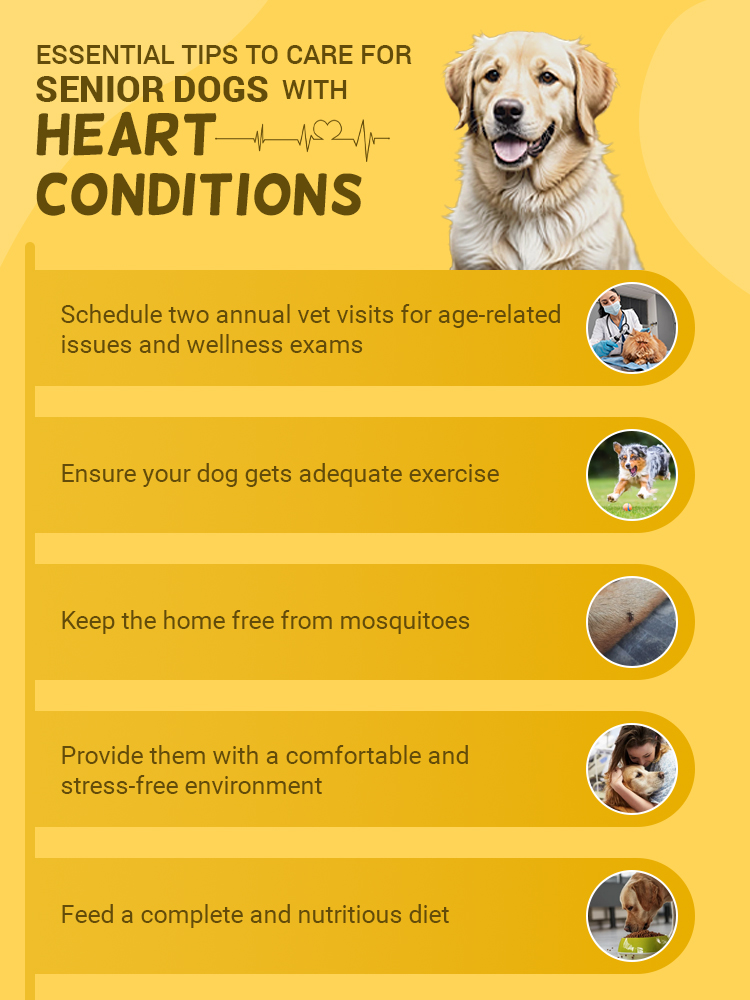Oct 30, 2024

'A healthy heart means a happy heart'. As your dog ages, their heart slows down and becomes prone to heart disease. Therefore, maintaining their heart health becomes essential. As a responsible dog parent, you need to be proactive and recognize the signs of heart disease. This can help you identify the problems early and provide appropriate aid.
In this blog, we will understand the basics of heart disease in senior dogs including revealing signs, common types and tips to prevent heart problems to ensure they have the best possible quality of life in their golden years.
Let's begin!
Heart disease in dogs refers to a condition that affects the heart structure and/or functions. This can include problems with the heart's structure, such as issues with its valves or muscles, as well as electrical problems that disrupt the heart's rhythm. Some dogs are born with heart issues while others develop problems later leading to severe health problems.
There are two ways dogs develop heart disease; congenital and acquired.
Congenital Heart Disease: Some dogs are born with heart defects. The signs are noticeable at a young age, but in some cases, they go unnoticed. This condition can occur due to malformation of the heart during embryonic development. It can also be genetic or hereditary. Patent Ductus Arteriosus, Subaortic Stenosis, Pulmonic Stenosis, and Ventricular Septal Defect are some of the congenital heart diseases that can affect dogs.
Acquired Heart Disease: This condition develops as dogs age, usually when dogs reach middle or old age. Various factors contribute to this condition such as genetics, breed predispositions, weight, etc. Degenerative Valve Disease, Dilated Cardiomyopathy, and Mitral Valve Disease are some of the acquired heart diseases in dogs.
Signs of Heart Disease in Dogs
Understanding the signs of heart disease is important for timely action. Here are the common signs of heart disease:
Breathing difficulties
Breathing difficulties, such as fast breathing or excessive panting even at rest, indicate a heart problem. It happens because their heart isn't pumping blood well, which affects their ability to get enough oxygen.
Fainting or collapse
If your dog suddenly collapses or faints, it can be due to a heart condition. This can happen if their heart isn't pumping enough blood to their brain.
Abnormal swellings (Limbs or abdomen)
Watch out for swelling in your dog's limbs or abdomen. This swelling or edema can happen when fluid builds up in body tissues.
Fatigue and reduced energy levels
If your senior dog is more tired than usual or gets worn out quickly during walks or playtime, it could be because of heart disease. When their heart isn't working well, it can't deliver enough oxygen to their body which makes them feel fatigued and less active.

It's important to be aware of the signs of heart disease in your senior dog. Recognizing the symptoms early on will allow you to take immediate action to treat the existing condition and prevent further complications.
Happy aging to your senior dogs!
Aug 22, 2024
Every pet parent’s priority is to keep their furry friends protected from parasites such as fleas and ticks as they are harmful pests...
Jul 18, 2024
Flea and tick infestations are, unfortunately, a common and recurring part of your pet’s life, and you have to be on guard all-round ...